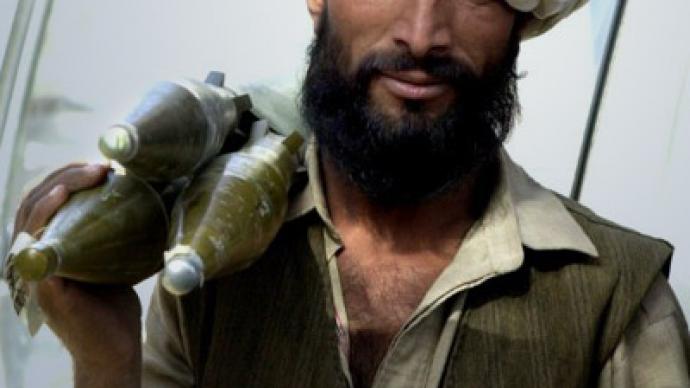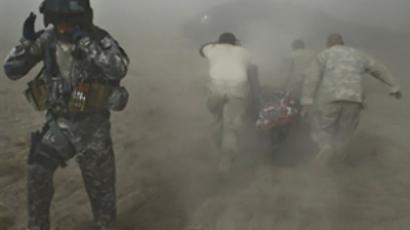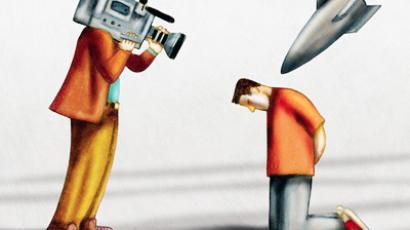Taliban sanction-lifting raises Russian alarm bells

As US-led NATO forces begin a slow retreat from Afghanistan after nearly 10 years at war, Russia warns that excluding Taliban members from the UN sanctions list should be approached with caution.
One of the Taliban’s key conditions for entering peace talks was the removal of UN sanctions. Russia, which says not enough is being done to halt heroin shipments across the region, warns that the removal of any names from the UN list must be intensely scrutinized."Any proposal to cross Taliban members off the sanctions list must be substantiated from all points of view," the Kremlin's special envoy for Afghanistan Zamir Kabulov told Interfax.Kabulov said Russia wants guarantees that the Taliban will not go back to their old ways once the sanctions are removed."This implies solid guarantees and definite responsibility on the part of the states that are proposing this idea – guarantees that the Taliban will not resume their activities," he said.Ever since the war in Afghanistan began 10 years ago, Europe and Russia have witnessed a sharp rise in the amount of heroin shipments entering their territories. According to a report put out by the United Nations, over one-fifth of the 375 metric tons of heroin exiting Afghanistan every year finds its way to Russia, which is now home to about 3 million users of Afghanistan’s major cash crop.Meanwhile, the process of lifting sanctions on some members of the Taliban is continuing. “This process is underway,” Kabulov noted. “Twelve (Taliban) last year, 14 this year were cleared from UN sanctions" he said. "The process is measured, and the idea of a measured and personal approach has been proposed by Russia.”Everything must be well substantiated, the Russian diplomat added.The United States opened military operations in Afghanistan on October 7, 2001 in response to the 9/11 terrorist attacks, which Washington was quick to blame on Al-Qaeda mastermind Osama Bin Laden. Then-President George W. Bush blamed the Taliban for “harboring terrorists,” and the rest is history.America’s experience in Afghanistan, however, has been far less successful than many were enthusiastically predicting at the start of the military operation. Indeed, as Operation Enduring Freedom approaches the 10th anniversary of ongoing hostilities, many commentators are drawing parallels between the US experience in Afghanistan and that of the Soviet Union, which fought its own war in the “graveyard of empires” from December 27, 1979 to February 15, 1989. Ironically, the United States claims that it coaxed the Soviet Union into “the Afghan trap”, as it was called. Yet now, after billions of dollars spent and a sea of blood spilt, Washington finds itself knee-deep in the very same predicament.Meanwhile, a large crowd of supporters of Afghanistan's former President Burhanuddin Rabbani gathered outside his home in Kabul on Wednesday to condemn his killing.Rabbani was assassinated on Tuesday by a suicide bomber.The former president had just returned from a trip to Iran to meet with a man who had been described as a high-ranking Taliban contact, the Associated Press reported.The assassination, carried out in Rabbani's Kabul home, dealt a blow to attempts at ending a decade of war. “The killing of the 70-year-old, an ethnic Tajik and one of the wise old men of Afghan politics, will blunt efforts to keep in check the regional and ethnic rivalries that help feed the insurgency,” AP reported.Afghan President Hamid Karzai cut short a visit to New York, where he was in attendance at the UN General Assembly Session, and called on Afghans to remain strong in the face of Rabbani's "martyrdom". The attack on the former president came just days after a daytime attack by insurgents on the US Embassy and NATO headquarters in the capital, Kabul.On June 22, 2011, US President Barack Obama announced that 10,000 US troops would be withdrawn from Afghanistan by the end of 2011. An additional 23,000 troops will leave the country by the summer of 2012, leaving the number of US troops at over 60,000.Robert Bridge, RT














